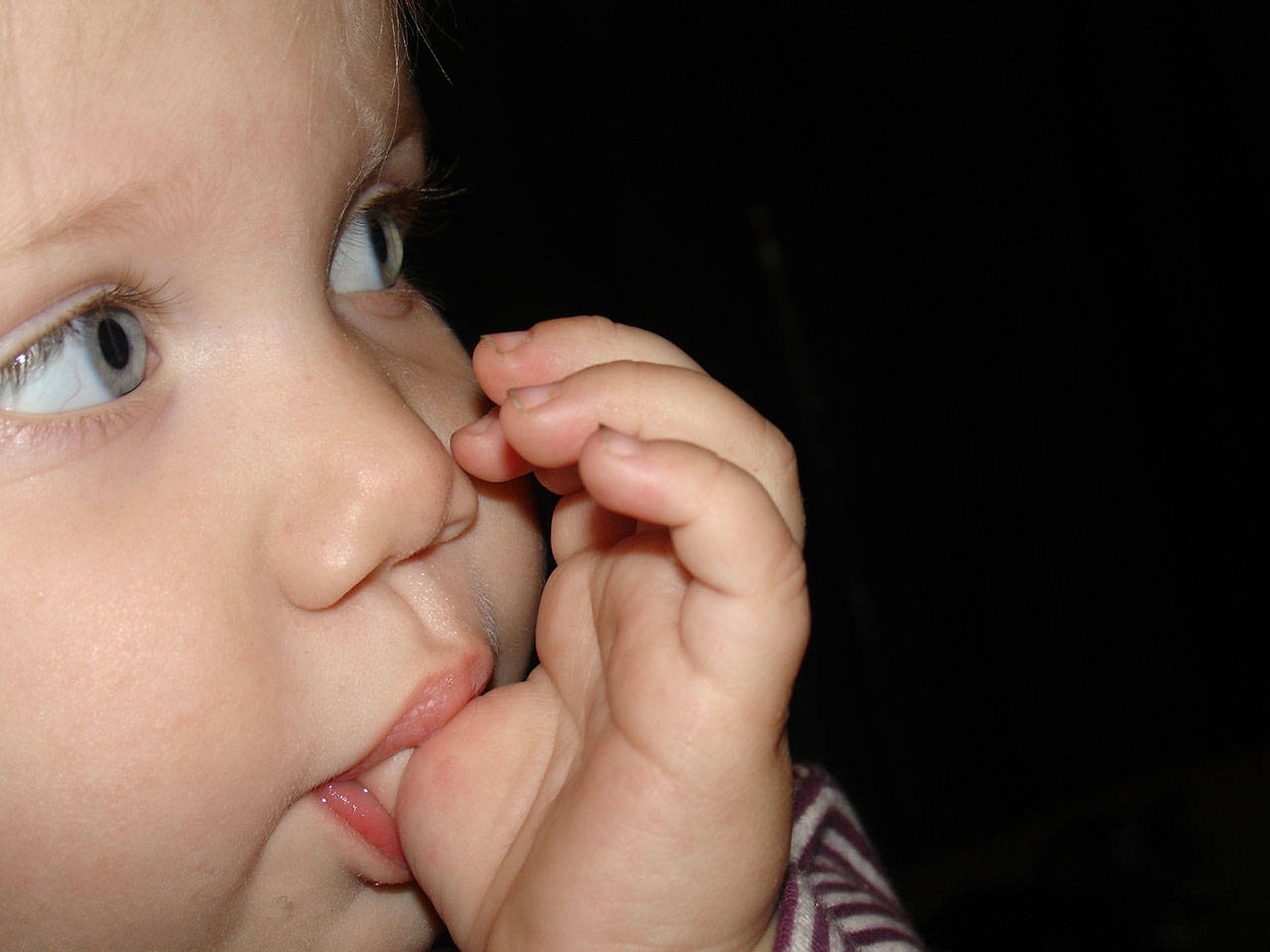Digit habits including thumb sucking, finger sucking, toy/blanket sucking and pacifier use are all forms of non-nutritive sucking.
Non-nutritive sucking is an almost universal and normal part of development in children. Sucking and swallowing starts as early as 13-16 weeks in utero and thumb sucking has been noted on prenatal ultrasounds. For babies, this form of sucking provides a powerful self-soothing method and is generally not problematic. Currently pacifier use is more prevalent than digit sucking, but 70-90 percent of all children will engage in one of these behaviors. Naturally over time most children stop these behaviors as they develop greater self-control and other mechanisms of self-soothing. By 4 years of age, only 4-12 percent of children continue to use pacifiers or have digit habits.
If children continue non-nutritive sucking habits beyond early childhood, there is a risk for dental problems, an increase in infections, speech problems and skin irritation from saliva. To determine whether your child’s sucking behavior is problematic depends upon three factors: frequency, intensity, and duration. If children suck frequently, with intensity and for a prolonged duration, sucking can lead to changes in the teeth, swallowing patterns and mouth resting position.
With regard to changes in the teeth, the slow changes that occur from the habit can be likened to the changes that orthodontic braces produce. Braces alter the bite and position of the teeth through pressure on the bone, which leads to remodeling. Persistent digit habits can lead to an open bite where the teeth no longer come together, protrusion of the upper front teeth and an overbite. Thumb sucking may also be judged poorly by peers and adults, which could lead to negative feedback to the child.
As we both know from being mothers to avid thumb suckers, it can be difficult and traumatic to stop a persistent digit habit. Most pediatricians, dentists and orthodontists recommend addressing persistent digit habits only after the age of 4 as many children stop these habits on their own as they mature or from peer pressure in preschool.
Praise and positive reinforcement when children are not sucking is the first step. Sticker charts, rewards and gentle reminders are very helpful. There are also several books that address this topic for parents and children including “David Decides about Thumbsucking” by Susan Heitler and “Thumb Love” by Elise Primavera. Physical reminders such as bandaids, socks and gloves can also be used. As a last resort, an orthodontist can initiate an oral appliance called a palatal crib or rake. The most important thing to remember is that intervention should not cause more stress or strain than the problem itself.
So don’t worry if your child has a digit habit; it is a common and normal part of development. Rejoice that it may help your young child when he/she is bored, tired or anxious. However, if this habit persists or seems excessive then talk to your pediatrician or dental professional.
Dr. Elizabeth Evans has been practicing pediatrics for over 15 years. She lives on Mercer Island with her husband and three daughters. She is actively involved in the community with Girl Scouts and the Lakeridge Elementary PTA. Dr. Kara McCulloch has been practicing orthodontics for 20 years. She is the mother of three kids and is an active supporter of the Mercer Island community.



